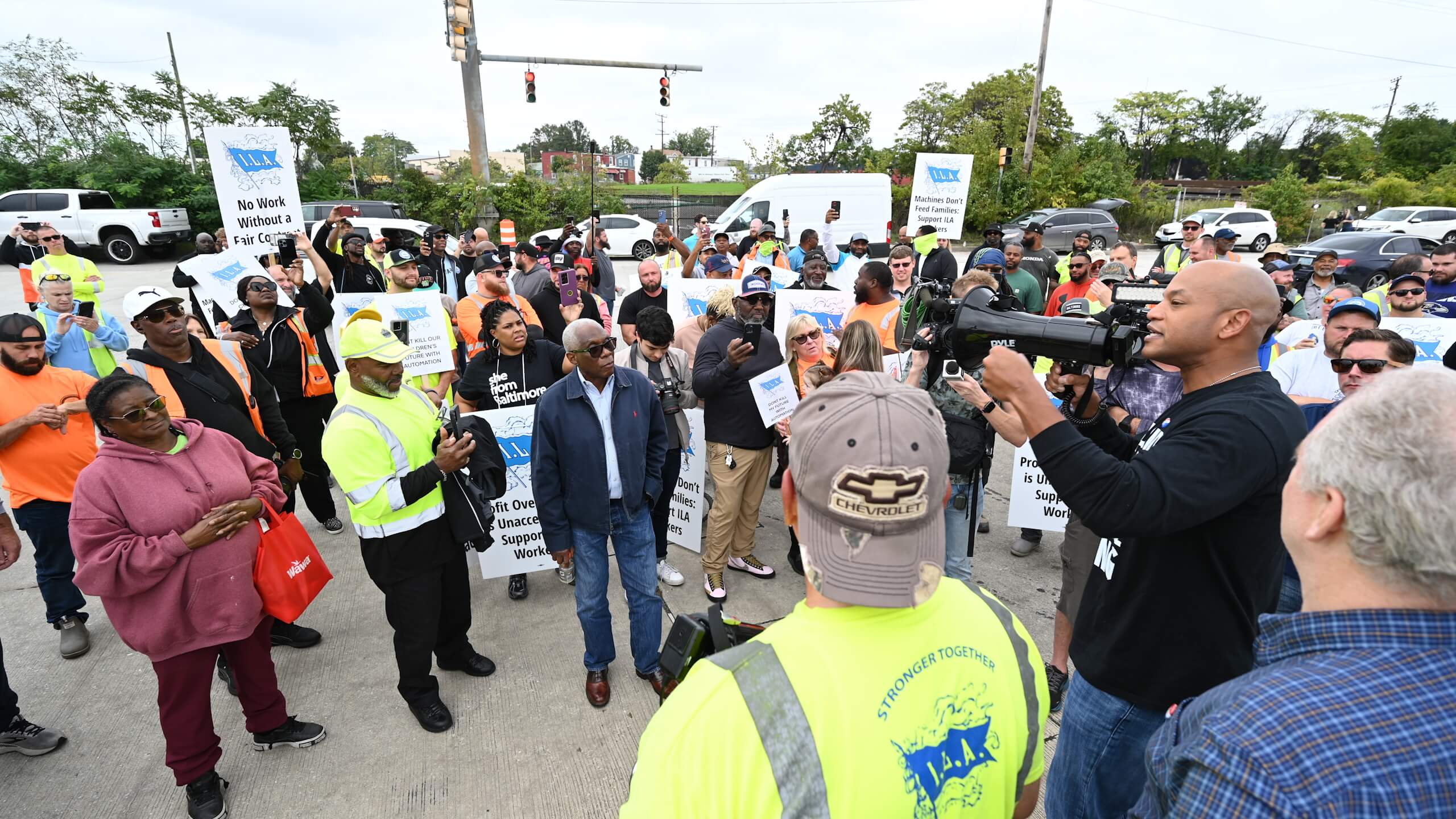
This article was originally published on American Greatness - News. You can read the original article HERE

After just three days of port workers striking along the entirety of the East Coast of the United States, the union has reached a tentative agreement to send them back to work.
As reported by the Epoch Times, the International Longshoremen’s Association (ILA) began the strike on Tuesday as its roughly 45,000 members demanded, among other conditions, higher pay and greater crackdowns on automation in their industry. On Thursday, the U.S. Maritime Alliance (USMX) reached an agreement that included a provisional wage deal, which was enough to satisfy the dock workers and the union’s leadership.
The agreement includes a 62% increase in wages over the course of the next six-year contract, while also extending the master contract to add more time for the negotiation period to confirm additional details.
“The International Longshoremen’s Association and the United States Maritime Alliance, Ltd. have reached a tentative agreement on wages and have agreed to extend the Master Contract until January 15, 2025, to return to the bargaining table to negotiate all other outstanding issues,” said a joint statement issued by the ILA and USMX.
The strike was the largest of its kind in nearly 50 years, as the ILA encompasses workers at every major coastal port on the East Coast, from Texas to Maine. The strike threatened a nationwide supply chain crisis as freighters full of supplies and other goods were forced to loiter offshore, risking the expiration of some of their cargo.
ILA president Harold Daggett had declared in a statement ahead of the strike that his union was “prepared to fight as long as necessary.”
It was estimated that, if the strike had continued for just one week, it would have cost the American economy up to $3.78 billion, an average of $540 million per day. It was also estimated that overall gross domestic product (GDP) growth would fall by 0.13%, roughly $7.5 billion, each week if the strike had dragged on.
The quick resolution to the strike further proves the overwhelming bargaining power that such unions hold. It also represents an ongoing trend of unions becoming increasingly dissatisfied with the state of the economy under the Biden-Harris Administration; this has been reflected in numerous polls showing Harris significantly underperforming among union voters compared to past Democratic nominees, while former President Donald Trump is winning with certain unions such as the Teamsters.
This article was originally published by American Greatness - News. We only curate news from sources that align with the core values of our intended conservative audience. If you like the news you read here we encourage you to utilize the original sources for even more great news and opinions you can trust!










Comments